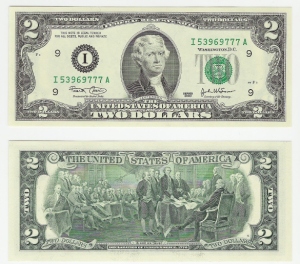The state should abolish marriage.
Let me clarify. I think states should issue licenses for civil unions for all couples of legal age wishing to be legally bonded. Churches could still perform marriage rites for those who wanted it, of course, but the “marriage license” should be a thing of the past. Why? Because marriage is recognized both by the state and/or by a religious authority and there is a clear conflict of interest there as well as a conflation of the civil with the religious.
The history of marriage varies depending on culture. Generally speaking, though, marriage was often seen as a transfer of property (the wife), but it should be noted that marriages did not always have to be registered with the state. It was John Calvin who changed things with the Marriage Ordinance of Geneva which claimed that marriage should be constituted by “the dual requirements of state registration and church consecration.”
Marriage in the U.S. today is formalized in a ceremony by a government official or a religious official. It’s a dual act in the latter of these cases, a civil act and a religious act. The majority of arguments I’ve heard against same-sex marriage have been religious arguments (predominantly Christian and Islamic).[1] The flaw with this reasoning is that religious marriage is incorrectly seen as the same thing as a civil marriage. That said, I’ve also heard people argue that when put to popular vote, no state has voted to expand marriage beyond a heterosexual couple.[2]
Neither of these arguments work, because they both point to flaws in our particular brand of democracy for which the Bill of Rights was attempting to reconcile.
Civil rights laws exist in order to protect the minority. Thomas Jefferson, a “founding father,” put it best when he said that: “the rights of the minority should never be voted on by the majority.”
Furthermore, there is supposed to be a separation of church and state in this country, because the Bill of Rights affords all citizens freedom of religion. If church officials do not want to perform marriages for same-sex couples, that is perfectly within their rights. But a Christian (or any other religious) marriage shouldn’t be conflated with a state recognized union for any couple, because it’s not the same thing. The legal benefits of being married should apply instead to all civil unions. The spiritual benefits of a religious marriage shouldn’t have anything to do with insurance benefits or taxes or next-of-kin rights. This is the domain of the secular state.
Arguments to the contrary don’t work, because same-sex marriage is a civil rights issue. It doesn’t matter what the majority says about an issue of civil rights.
“The very purpose of a Bill of Rights was to withdraw certain subjects from the vicissitudes of political controversy, to place them beyond the reach of majorities and officials and to establish them as legal principles to be applied by the courts. One’s right to life, liberty, and property, to free speech, a free press, freedom of worship and assembly, and other fundamental rights may not be submitted to vote; they depend on the outcome of no elections.” -Supreme Court Justice Robert H. Jackson, in W. Va. State Bd. of Education v. Barnette (1943)
A person who opposes same-sex marriage on religious grounds can refuse to recognize the marriage if they choose, but the State cannot refuse to grant civil unions to any citizen without violating the supposed rights of that citizen.
To me, the only solution is a clean break between marriage and civil union. Leave marriage (and its disturbing paternalistic heritage) in the domain of the religious, and give all the legal benefits and responsibilities to civil unions.
Is it just convention that keeps us from this? Or am I missing something?
[1]Of course, some churches do recognize same-sex marriage. The people who argue against same-sex marriage just tend to be religious.
[2]I’m lazy and haven’t double-checked this.

 Now, I admittedly hesitate to use two-dollar bills in vending machines and automatic checkouts, because… well, because I don’t trust machines of any sort, but also because the two-dollar bill is often omitted from lists of bill denominations that are accepted. Cashiers almost always give me very odd looks when I hand over my two-dollar bills, and I inevitably have to have a conversation with them about the two-dollar bill. Which I don’t mind; especially when the conversation proceeds to a discussion of Thomas Jefferson.
Now, I admittedly hesitate to use two-dollar bills in vending machines and automatic checkouts, because… well, because I don’t trust machines of any sort, but also because the two-dollar bill is often omitted from lists of bill denominations that are accepted. Cashiers almost always give me very odd looks when I hand over my two-dollar bills, and I inevitably have to have a conversation with them about the two-dollar bill. Which I don’t mind; especially when the conversation proceeds to a discussion of Thomas Jefferson.